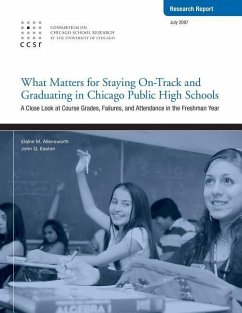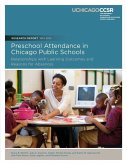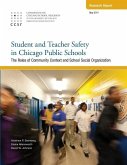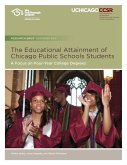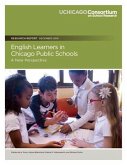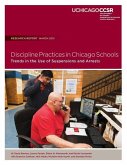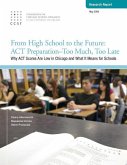Almost half of all Chicago Public School students fail to graduate, and in some CPS high schools more students drop out than graduate. It is a problem that can sometimes feel overwhelming to address because the causes of dropout are myriad and complex. What is often lost in discussions about dropping out is the one factor that is most directly related to graduation-students' performance in their courses. In this research report, CCSR authors Elaine Allensworth and John Q. Easton look into the elements of course performance that predict whether students will graduate and suggest what schools and families can do to keep more teens in school. Building on earlier CCSR research of "on-track indicators" that demonstrated a connection between failing freshman classes and dropping out, the authors found that a number of freshman-year factors can be used to predict high school graduation. Grades are as predictive as on-track indicators; almost all students with a "B" average or better at the end of their freshman year graduate, compared to only a quarter of those with a "D" average. The research also revealed how critical attendance is for freshman success. Conventional wisdom holds that eighth grade test scores are good predictors of students' likelihood to do well in high school courses. However, course attendance is eight times more predictive of course failure in the freshman year than test scores. Just one week of absence is associated with a much greater likelihood of failure, regardless of incoming achievement. The authors also examine how school practices affect students' grades, failure rates and attendance. Students' grades and attendance are particularly better than expected in schools characterized by two features-supportive relationships between teachers and students, and a perception among students that the work they are doing in high school is preparing them for the future.
Hinweis: Dieser Artikel kann nur an eine deutsche Lieferadresse ausgeliefert werden.
Hinweis: Dieser Artikel kann nur an eine deutsche Lieferadresse ausgeliefert werden.

